Moving to Norway is a desire that many people share. This post shows how to move to Norway and 30 things to know before living in Norway. The post will also give details on the various Norwegian visas that are available and how to apply for them as a citizen of various countries.
This was originally written in 2013 and has been updated regularly since (latest update is February 2020).
In this post...
Living in Norway: 30 Things To Know Before Moving to Norway
I spent four years living in Norway… a fantastic Scandinavian country that is as desirable as it is frigid. To be honest, it was one of the greatest periods of my life and I really loved my life in Norway, even if the adjustments were sometimes harsh and difficult.
As I have moved around to various places since I look back on my time in the north and realize that it was the easiest place to adjust to as an American. While the Norwegian immigration process can be a bit stringent, it was worth it to say that I called the country home for a few years.
This post discusses how to move to Norway, applying for a Norwegian visa or permit, what it is like to live in Norway, and thirty things to know before you make that move.
I did this as a collaborative post with Inspiring Travellers and you can see the link to their 15 things to know before moving to Norway at the end of the post! Be sure to click it to read their thoughts as they spent time living in Stavanger.
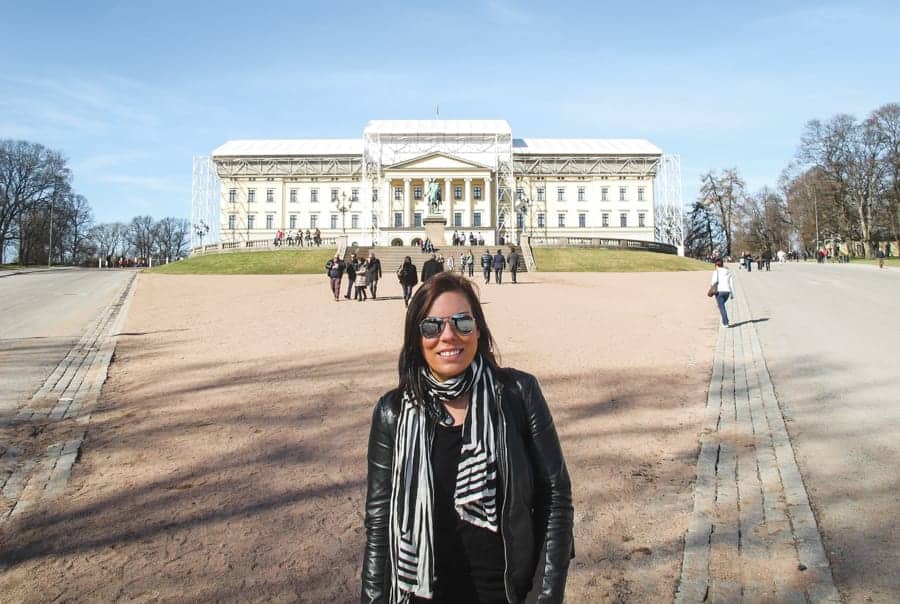
What to Know Before Living in Norway
There are so many things to know before relocating to Norway. I spent quite a few years living in Norway and this post discusses things I think you should consider before making the move.
From food quality to salaries and beyond, here are 15 things I think you should know before migrating to Norway (the other 15 can be found at the very end of this post).
Allemannsrett
The beauty of Allemannsrett is that this ‘law’ means that you can pitch your tent or hike anywhere in Norway. Granted, you can’t pitch a tent in the middle of Frognerparken in Oslo’s center, but anywhere out in nature or mountains that are not private property is an absolute go.
I can’t tell you how much I love this right and how I think it should exist everywhere in Norway! Hotels and hostels aren’t cheap in Norway, so this gives travelers and locals another way to be out in nature at an affordable cost.
While I never took full advantage of this, it still is something I brag to others about whenever I speak about my time living in Norway.

Norwegian Salaries
I constantly hear from Norwegians, even when irrelevant to a conversation, “We are so lucky to get paid so well here…that is why everything is more expensive.” This is not always true. Granted, a housekeeper or retail shop worker gets paid drastically more than in the United States. But skilled workers with education don’t always make more living in Norway.
One key exception is teachers. Teacher salaries in Norway are much better than in North America and that is a real shame (for North America). There are other careers that are valued more in Norway than in the US and other countries.
I, personally, never made the same amount of money in Norway as I would have in the US. And the taxes are much higher in Norway. On the other hand, medicine is socialized and many other amenities are taken care of, so it all evened out in the end.
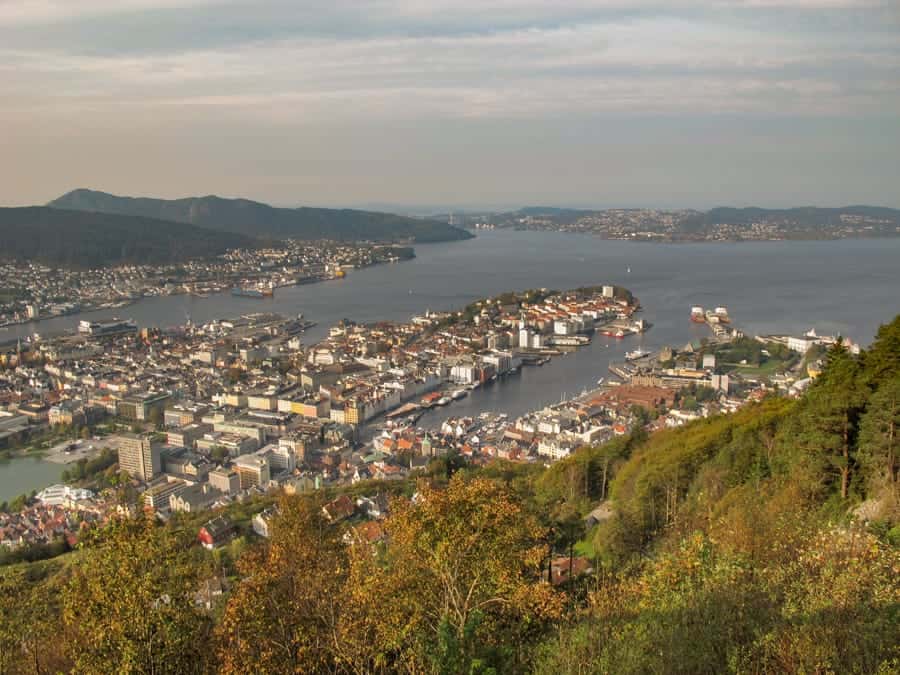
If you look at the OECD Better Life Index, you will notice that based on disposable income, the average American makes astoundingly more than the average Norwegian per year.
This takes into account a lot of the wealth gaps (to my surprise, there wasn’t as large of a difference between the countries as I anticipated). And with the cost of living being so much lower in the US, your money will go much further than it would in Norway.
This is hard for people to see… especially since many jobs (engineers, for example) are in much higher demand in Norway than they are in the US or other countries.
So while you may get paid very well to be an engineer in Norway, that does not mean that you won’t get paid equivalent or higher in another country… they just have the demand for it in Norway at the moment.
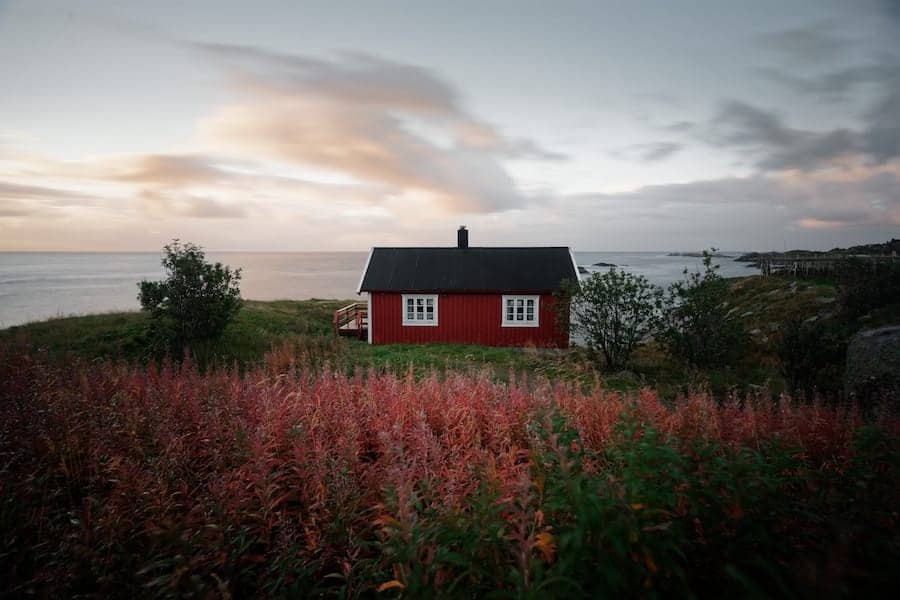
Everyone is given a new tax card each year
They are supposed to come automatically, but sometimes you have to order them if you don’t receive them on time. What happens if you don’t turn yours in or are in between the processing of visas and can’t receive one until the visa processing is done?
You are taxed at 50%. I am experiencing this right now and trust me, it is BRUTAL. I’m told I’ll receive a lot of it back when tax time comes. Fingers crossed. (Update: All was sorted in the end).
Norwegian taxes are automated
Taxes in Norway are included in the actual price of the goods. While this leads to a lack of transparency, in my opinion, it makes shopping easy. And, your annual taxes are pretty much automated. No H&R Block involvement. Amazing.
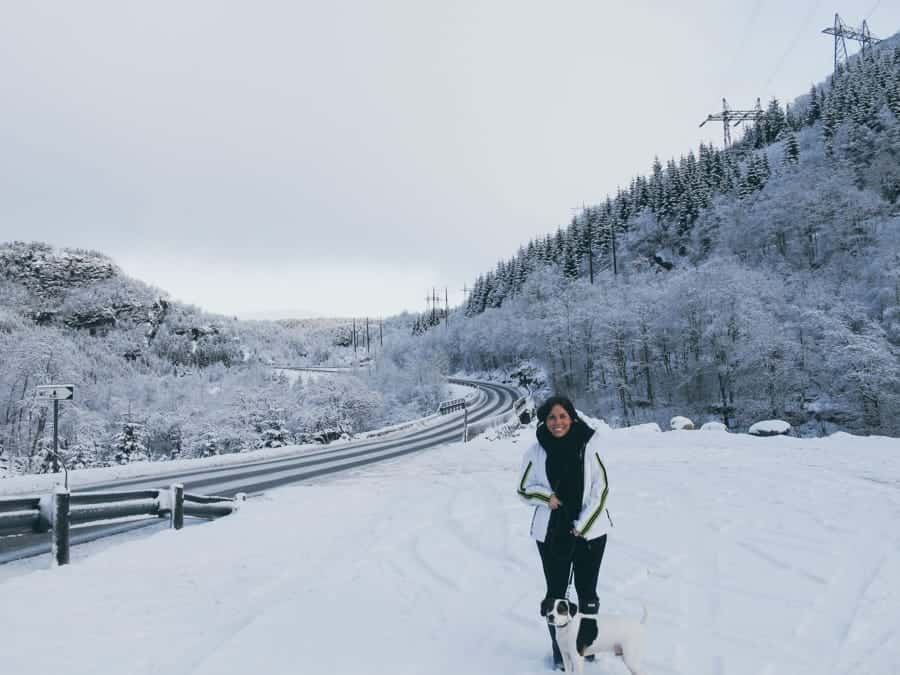
Food quality is poor or limited
Since Norway is not part of the EU, they don’t have the same amount of imports as grocery stores in Sweden, for example. And what you do get in the grocery stores is usually rather poor quality. I can’t tell you how badly I miss Trader Joe’s or Whole Foods.
Luckily, if you’re in Oslo, the Grønland markets can provide you with your foreign needs, at a lower price, and often, with better quality. Many stores have opened in recent years that are helping solve this problem, in addition.
Don’t let Kiwi’s produce guarantee trick you into believing their quality is superior to any other store’s. I will mention that I have seen drastic improvements in food quality since I moved here.
Perhaps the TV2 programs about the poor quality have helped? (Again, this was written in 2013 and has likely changed a bit- I no longer live in Norway, so I have no idea!)
Things that are better in Norway than many other places? Chocolate, berries (they will blow your mind!), bread, and many other foods. Try to buy seasonal produce.
Also, do note that if you’re visiting other parts of the country like Tromso or parts more remote that the situation could be different!
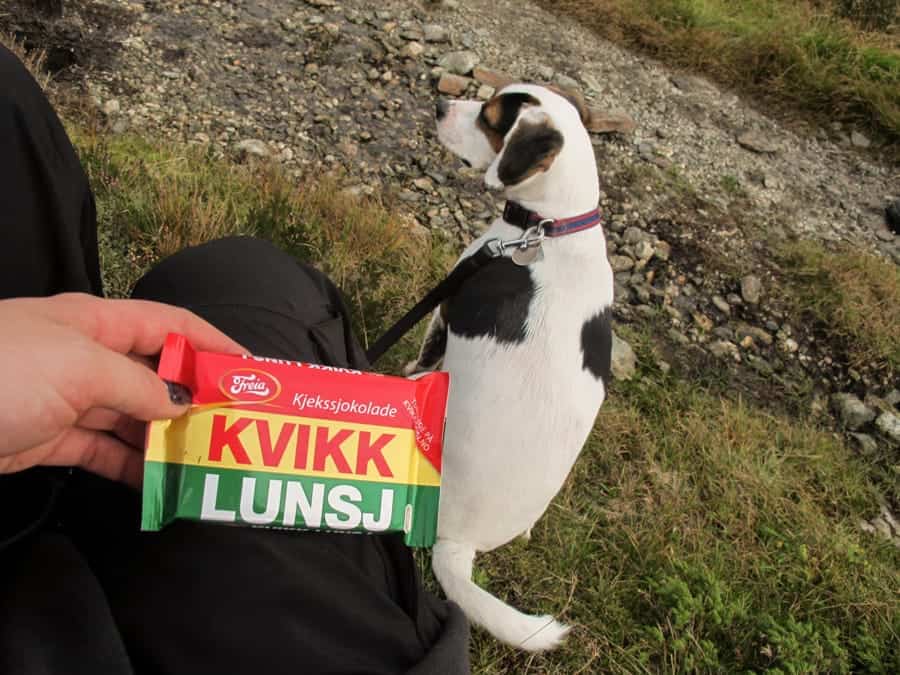
Norwegians don’t complain
And if Norwegian people do complain, it is very rare. So, when you do have a legitimate complaint with a company or its services, you will shock the lower-level employees because they don’t experience this often.
I purchased a sofa from Bohus here in Norway and had some delivery issues with it (it was going to be months late). I was upset, naturally, and called to complain.
The employee who received my phone call was so confused about what to do or who to escalate the call to that I think I frazzled her for days.
Luckily, the problem was resolved in a professional and timely manner and I ended up having a superb customer service interaction with Bohus.

Norwegians think they complain… I just want to advise them to move to Germany where complaining is an art form and then they will see how easy-going they truly are.
Americans love a good complaint too, even if we don’t do it directly to your face.
If you can’t find it in Norway… it might be banned
The Norwegian government is notorious for banning things. One of my favorite Yogi teas is banned here. I didn’t discover this until my friend who works for customs and tolls here informed me that that is why I am unable to find it but can find every single other Yogi tea here.
Red Bull was banned here in recent years, in fact, due to caffeine levels.
A 12oz Red Bull has less caffeine than a cup of coffee. I think it was probably banned for other reasons, maybe like its ability to lead someone to a slow death, but the government just told the people it was caffeine-levels related.
But on a general note, if you can’t find it… before you go to extreme measures of trying to have a grocery store import it (which I have done), find out if it is even allowed in the country at all. There may be a reason you can’t get it here.
Shipping products into Norway is no easy feat
Since Norway is not part of the EU, many places abroad won’t ship here. I don’t think it is that they don’t want to, but many people assume that Norway is actually part of the EU.
I have found that you can often get an exception made by speaking with managers, but there have been times I was unable to get that permission granted.
In addition, you have to pay tolls and customs on products shipped to Norway that are over about a $40 (give or take depending on currency exchange at the moment).
These taxes can often amount to more than what you paid for the product in the first place, depending on what it is. So I have given up shopping online from abroad. While I became bitter about it, it actually saved me a lot of money in the end and forced me to not buy things I didn’t need, so I am semi-grateful for it.
You can calculate tolls and customs costs here.
Healthcare in Norway
I actually never had a chance to experience healthcare in Norway. Not a single time (my dog went to the vet a few times if that counts). This is obviously a good thing. I only know what I watch on the news or have experienced with others.
Vision and dental are not covered. The healthcare itself is very basic and does not include holistic approaches or natural forms of medicine (chiropractors included). Many of the hospitals look like they were built in 1903 but others are very modern.
On the contrary, everyone is entitled to coverage here. I have found that healthcare here is more expensive for me at this point in my life than what I got in the US because I’m healthy and have no chronic issues.
But, if you’re chronically ill or have an ongoing ailment, this is the country for you.

Every time you go to the doctor, you must pay around $40, in addition to the medicine you’re prescribed. But, once you hit your cap (I want to say it’s around $500ish), everything is covered for the remainder of the year.
The medicine in Norway is socialized and comes out of your taxes so you never see it in the first place.
One thing I do notice a lot due to my watching and reading the news here is that a lot of the equipment and practices are extremely out of date.
I just saw a situation with a boy having to travel to Germany out of pocket because the heart procedures he was having done were from the 1970s and doing more damage than good.
He could have benefitted from a solid international health insurance plan, but having to travel that far for a procedure can give added stress.
A lot of what is done here is out-of-date, and not just in the field of medicine. Healthcare in Norway is always evolving, usually for the better, so I think the pros of the system far outweigh the cons. Especially for an American moving to Norway.
Banking in Norway is awesome
I love the banking system in Norway. Everything is done easily and online, which is the same as the States, but transferring money amongst people is significantly easier here in Norway. Of course, I’m not sitting in a country of 325 million people… but instead 5 million people which is far easier to manage, but still.
I can just type in someone’s bank account number and the money sends, regardless of which bank or establishment the person is banking with.
Bank account numbers aren’t a private thing here. If you owe your friend $20, you can just transfer them 100kr over the internet. Banking in Norway is so efficient and easy that it makes me sick.
Feriepenger in Norway (Holiday Money)
Everyone in the world thinks that Norway gets a month of vacation during the summer and paid to not work. Well, this is very wrong.
I, believe it or not, got more vacation time with pay in the United States than I do here in Norway. You see, the month Norwegians are mandated to take off in July, is unpaid. Many jobs and offices close down so you’re forced to not work.
While this is conceptually a nice idea, it sucks for those who need the money and desire to work through July.
The way people are able to afford a month off without pay is because their company withholds money from the workers’ paychecks every month the year prior and gives them a nice, lump sum of money in June of the following year, aptly called feriepenger.
There are reasons I both like and dislike this method. I like it because you get a month of vacation off. I’m a traveler at heart and will happily take off a month unpaid if given the chance.
I also like that someone else is kind of managing my money because I’m lousy with money.
I dislike it because depending on the job, you are forced to take off even if you need the cash and want to work extra. I also dislike it because it is in July.
Who really wants to leave Norway and travel abroad at the height of Norway’s most beautiful and tolerable season? Give me a month off in December or January and I’d have a more positive response.
Also, if it is your first year at a job, you don’t receive feriepenger. So basically, you get to take a month off unpaid.
Conformity in Norway
I haven’t talked too much about this in previous posts but really should have. This is the absolute most conformed place I’ve ever been in the world. The girls all dress the same. And if someone claims they have their own style or is an original, this simply means they just have a different color of Converse sneakers than their friends, who will undoubtedly all own the same white high-top ones. (Update- I don’t think people still rock the Converse in 2019).
If a trend catches on here…watch out. The summers are filled with girls in unflattering mom-like jean shorts, solid color t-shirt, long, straight box dyed blonde hair, and Converse white high-top sneakers.
In the winter, it is all about the Canadian Goose parka (whether it be real or a knockoff) with a fur-trimmed hood. The guys are not much different when it comes to conformity, but it is easier for me to notice on the females than the males since I’m a female myself.
Aside from style, you will also notice conformity in other manners. Skiing is another example. I understand this country is made for skiing and quite frankly, there is not much else to do here, but I swear, everyone does it. There is not a lot of variety when it comes to sports.
Sure, you have gyms and some indoor soccer centers, but pretty much just everyone skis. I guess I should have bought a pair of beginner skis when I moved to Norway and caught onto things but kids zooming past me was not something I wanted to witness and it would have crushed my pride!
A lot of what was mentioned above was pertaining to when this post was originally written in 2013. I am sure there are different brands being rocked now and that there is a movement toward individuality. I still travel back there frequently and I am noticing subtle changes.
Everything costs money in Norway
Wanna play tennis? Good luck finding a court that you don’t have to pay for. Own a TV? You must pay yearly taxes on it. Fortunately, recycling is free. So is hiking and enjoying the outdoors. There are many things to do in Bergen that don’t necessarily require money, fortunately… so long as you like nature.
Norwegians are masterminds when it comes to saving
Americans could use some tips on this. While I think many Norwegians buy and build homes way too young without much money in the bank, the majority seem super good at saving. It boggles my mind and I really need to start learning from them.
Traveling in Norway takes time and patience
Public transportation in Norway deserves a huge thumbs up. It is incredible. But you know those beautiful fjords? They make getting places kind of a nightmare. Some of my favorite Bergen day trips ended up as overnighters as a result!
Places that should really only take two hours to get to often take five hours to get to because one has to take the long way around the fjord or wait on a ferry to get across.
Don’t let maps fool you into thinking places are closer than they are. These kinds of situations tend to happen more in western Norway than on the east side.
Transportation in Norway is expensive. Even when I think I am getting a hell of a deal… I’m kind of getting screwed over. To go round trip from Oslo to Bergen (7 hours) via train with the absolute cheapest ticket possible is still over $100. For a 2-minute ride on Oslo’s public transportation system…you will pay around $5.
The ‘Flytoget’, or airport train, from Oslo’s international airport to the city center will run a person 170kr, or $30. EACH WAY.
There are ways to avoid this, but the average traveler or person new to Oslo doesn’t think about it when they step off of an airplane here. Again, these are 2013 prices and have inevitably been adjusted with currency rates since.
So, You Want to Live and Work in Norway?
Is Norway the right country for you? Have you done proper research? Have you given thought to the changes you will need to make to successfully move to Norway?
There are so many questions to ask before uprooting yourself to Scandinavia. I advise making a list of everyday things that matter to you and things that don’t matter as much. See where Norway fits in this all.
I like to go out and socialize and drink with friends. I don’t care about family or schools at this point in my life. So, perhaps Norway was not the best country for me at the time as I was going out and paying expensive bills but could not take advantage of how wonderfully the country treats children and families.
Everyone is different- just do your research to ensure Norway is a great place to live for you.
How to Move to Norway
Now, the part you have been waiting for. I know you’re asking yourself, “How can I move to Norway?” This next part details the visas available as well as some how-to information pertaining to becoming an expat in Norway.
Types of Visas to Live in Norway
Family Immigration Visa Options
In general, there are two types of Family Immigration Visas for Norway. Family Reunification, and Standard Family Immigration. In almost every case, there is an applicant and a reference person. The applicant is the person that applies for the visa, and the reference person the one that sends a written invitation to the applicant.
Spouses and registered partners
When you’re applying for this type of permit, you must have valid ID papers. Passports are universally accepted and they’ll be fine in almost every case. It’s important for the couple to prove that they have plans for living and working in Norway and that their marriage has to be valid in their home country.
Cohabitants in Norway
Norway supports visas for couples that aren’t married. The prime requirement is that both have to be at least 24 years of age and they have to have plans to live and work in the country. Proper identification is required as always, and in some cases, the couple might need to prove when and where they have lived together previously.
Fiancee Visa
It’s very important to know that this permit is not required to get married in Norway. However, those that apply for it have to prove that the marriage offer is genuine and is not merely a matter of convenience.
When the couple marries, the applicant needs to apply for a family immigration permit before this permit ends. In the case of the marriage not happening as planned, the applicant needs to return to their home country.
There are several other types and stipulations on how to get a visa to live in Norway based on family reunification, but these are some of the most commonly asked scenarios on my site, so I felt compelled to include them. You can see additional information here.
Become an Au Pair in Norway
Young women or girls between the ages of 18 and 30 can apply to be an Au Pair in Norway. The purpose of the stay must always be a cultural exchange and improving language skills, while the au pair helps around the household with light tasks, as well as help with taking care of the children and pets.

The au pair must either prove that they’ll be going back to their country after their stay or at least their circumstances must be highly likely that they’ll return.
The au pair is not allowed to work for another family, but will be entitled to holidays, insurance, and travel compensation by the family. The maximum time a person can live in Norway as an au pair is two years.
Study in Norway (and Visa Types)
The visa for studying in Norway also grants a permit for working half-time, or 20 hours per week, while studying. However, during the holidays you are permitted to work full time. This type of visa is only required if the applicant will be studying in Norway for longer than three months.
When studying in Norway (or even getting a job in Norway), you must have your education and transfer credits approved by NOKUT in several circumstances. You can do that on their website here.
Go to University in Norway
You can only apply for this permit once you’ve been accepted at a university. For it to be granted, you need to have finances to live in Norway on your own.
They don’t have to be only personal funds as you can also use student loans. The chosen school must also be approved by NOKUT.
Upper Secondary Schools and Vocational Schools
This permit is very similar to the one for college or university. However, there are three different ways a person can apply for this permit.
You can have an offer to study at a school that has partnered with a country or a non-profit organization, to attend a baccalaureate study program, or to attend a sports or art academy.
Folk High Schools
This is a visa for specific Norwegian folk high schools, which lasts for a year. It can’t be renewed after it ends, but it won’t be granted at all if the person has attended a religion-based school in Norway before.
Bible School in Norway
Applying for a bible school in Norway is very similar to applying for a folk high school. However, the school needs to be approved under the Adult Education Act, and the only way to check that is by contacting the school directly. This visa is also valid for only a year, and it won’t be granted if you’ve studied at a folk high school before.
Working in Norway
To apply for a work visa for Norway, a person generally needs to be either offered a job in Norway or have their own business.
However, there are multiple types of residence permits for a skilled worker. For each type, the applicant is required to pay their application fee and have the corresponding education. For almost every permit type, your family can apply to move to Norway with you.
Skilled Worker with Employment Offer in Norway
If you have a concrete and specific job offer from a Norwegian company, you can apply for this visa. In almost every case, the offer needs to be full-time, but sometimes the application can be accepted with only 80% of weekly hours. In some cases, it might be necessary to prove that you have the qualifications.
There are some jobs that require recognition from bodies of authority. These are for positions like that of health personnel, etc. For these specialized types of jobs, you would need a license from the Norwegian Directorate of Health.
Self-employed persons with a company abroad
This visa is reserved for those that have their own business outside of Norway but have a task for a Norwegian company. If you apply for this, then you can only work for the company you’ve applied for, and in the field that you’re already working in.
Seasonal Working Visa for Norway
To even apply for this type of permit, the person needs to apply to a proper seasonal industry.
Some examples are forestry, agriculture, fish processing, restaurant, and jobs within the tourism industry. There are also many winter jobs like running whale watching tours in Tromso, etc, that will require seasonal workers!
Trades, carpentry, and painting aren’t considered seasonal industries.
This type of job must be of a seasonal nature or for it to be a holiday stand-in. You need a specific job offer from the employer, but you can also work for several other employers at the same time.
You’ll be granted this visa only if there are no workers from Norway that can be recruited. It’s up to the employers to consult with the Norwegian Labor and Welfare Administration. However, for agriculture and forestry that isn’t required.
Job Seeker Visa for Norway
Normally, a person can only receive a visa if they have a job offer. However, in some cases, there can be an exception if the person is a skilled worker. This visa can be granted to people in exceptional cases so they can live in Norway while they’re looking for work.
This is a fairly difficult visa to obtain and you must already have personal funds to live in Norway. If you don’t manage to find a job in your own field within the six months of the permit’s validity, then you must live outside of the country for a full year before applying again.
I actually had this visa for a while when in Norway.
Job Seeker (with Norwegian Education)
This permit cannot be granted to a religious leader, teacher, or ethnic cook. There are a few criteria to fulfill before applying for this permit. You must either be a student, study for extra education, or be a researcher, and have a residence permit for either case.
It’s necessary for you to have personal funds when applying, but you can also work full-time while you’re looking for jobs.
Registration scheme for EU/EEA nationals in Norway
Any person from the EU and the EEA is free to work, live, and study in Norway. However, they need to register if they are to stay in Norway for more than three years. If you’re an EU/EEA national, you’re free to live and work in Norway and have your family move with you. After five years of living in Norway, you can apply for a permanent right of residence.
A family member can also register if they are the spouse, cohabitant over the age of 18, or child of under 21 years of age.
Applying for Asylum in Norway
Asylum seekers must be either already inside the country or at its borders. Their case will immediately start to be processed, and they’ll be under the protection of the police. They’re obliged to give personal details, and if they’re found to be false, then the seekers could receive punishment by authorities.
After some medical testing, like for tuberculosis, the asylum seekers will be interviewed to fully assess their situation. For minors, they’ll be given a legal representative if they’re not with parents or legal guardians.
Moving to Norway from America
I moved to Norway from the US and to be honest, it was a pretty seamless process in retrospect. A different visa for the language is what I initially landed before applying for various other types (all listed above).
The language visa no longer exists. There are several ways you can move to Norway from America and it is documented here. You can also see how to move to Norway from Australia or Canada there (which offer working visas to those nationalities and a few others).
I have only covered 15 of the 30 on the list! To check out the rest… head over to Inspiring Travellers and see what Norway tips they have shared with you from their experiences of living in Norway (Stavanger, to be exact).
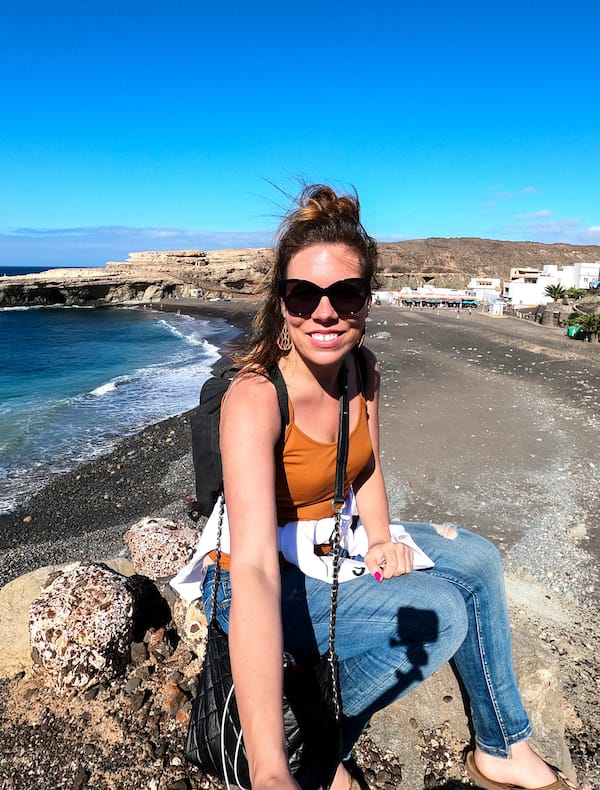
Megan is a travel blogger and writer with a background in digital marketing. Originally from Richmond, VA, she now splits her time between Frankfurt, Germany and Arctic Finland after also living in Norway, Armenia, and Kazakhstan. She has a passion for winter travel, as well as the Nordic countries, but you can also find her eating her way through Italy, perusing perfume stores in Paris, or taking road trips through the USA. Megan has written for or been featured by National Geographic, Forbes, Lonely Planet, the New York Times, and more. She co-authored Fodor’s Travel ‘Essential Norway’ and has visited 45 US states and 100+ countries.


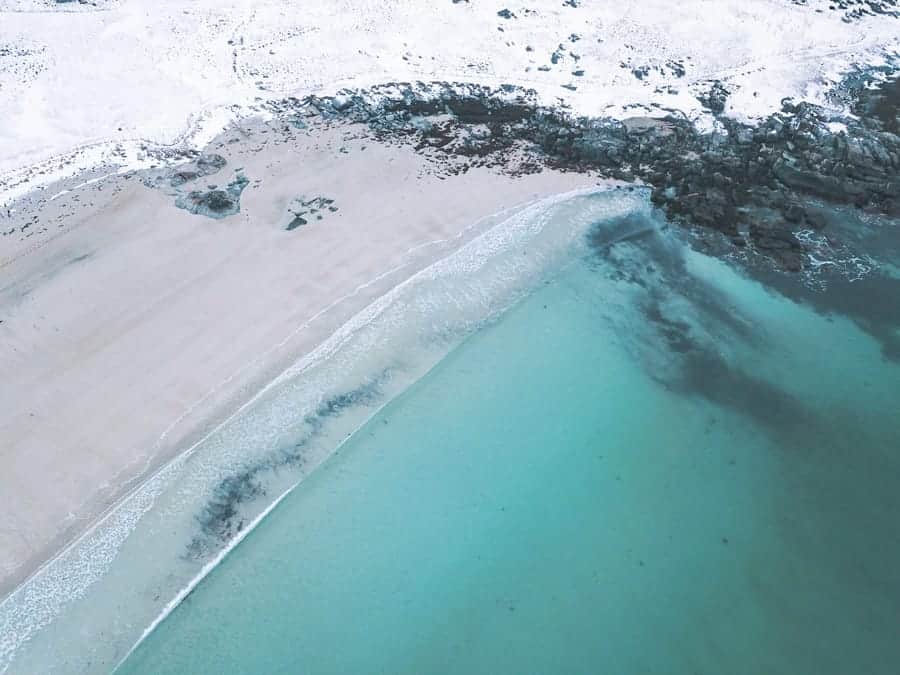

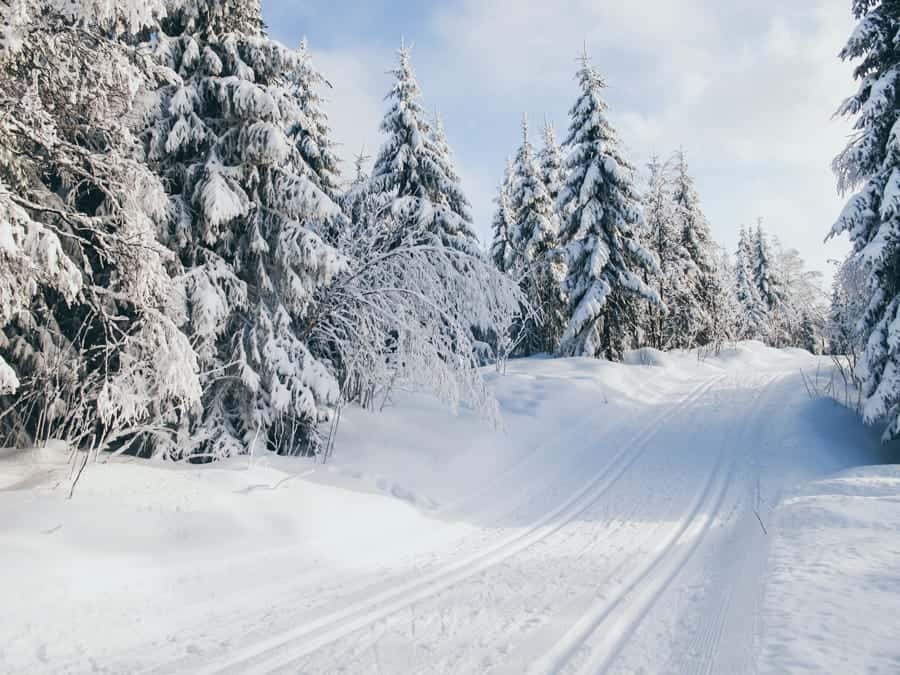
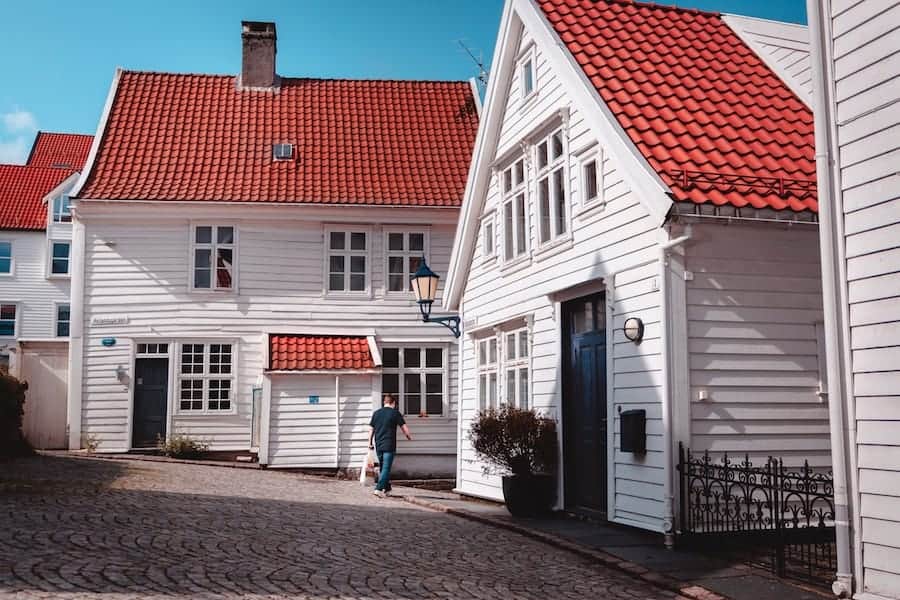

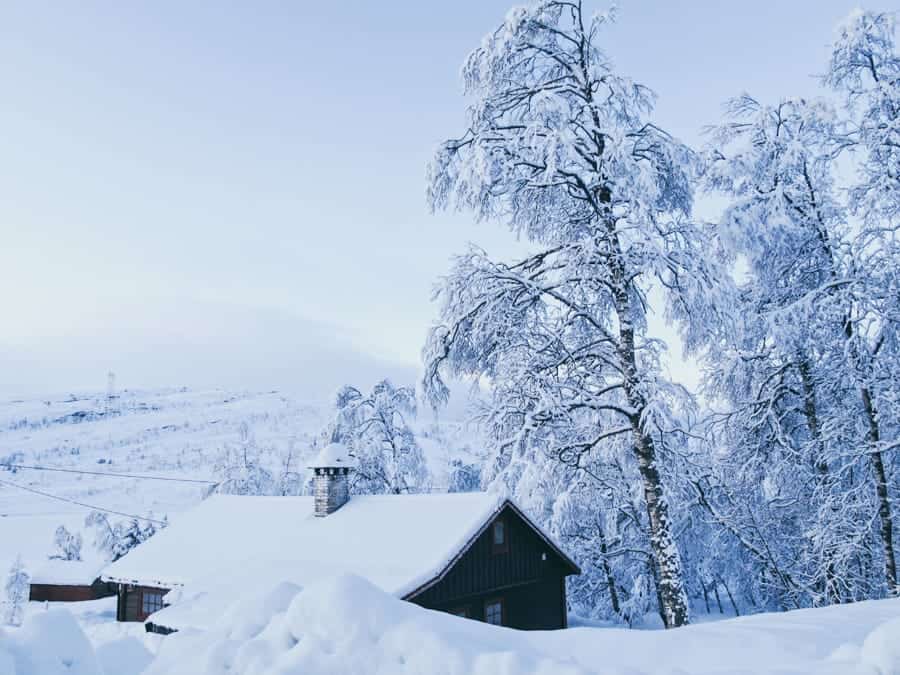
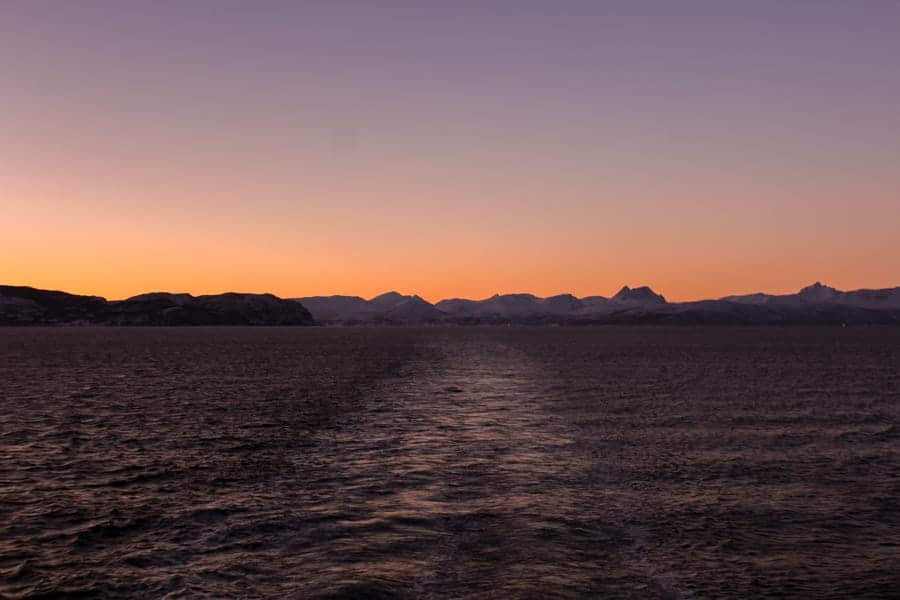

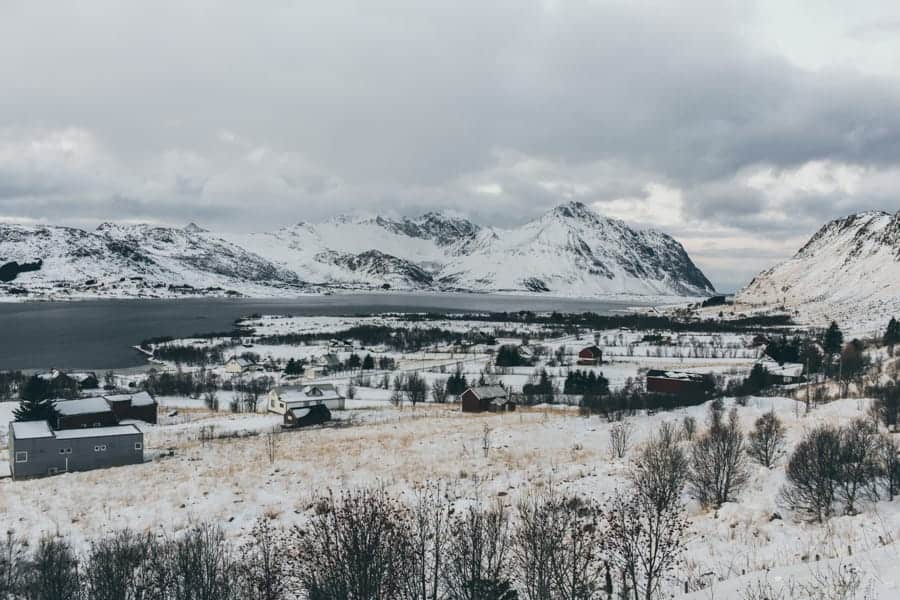
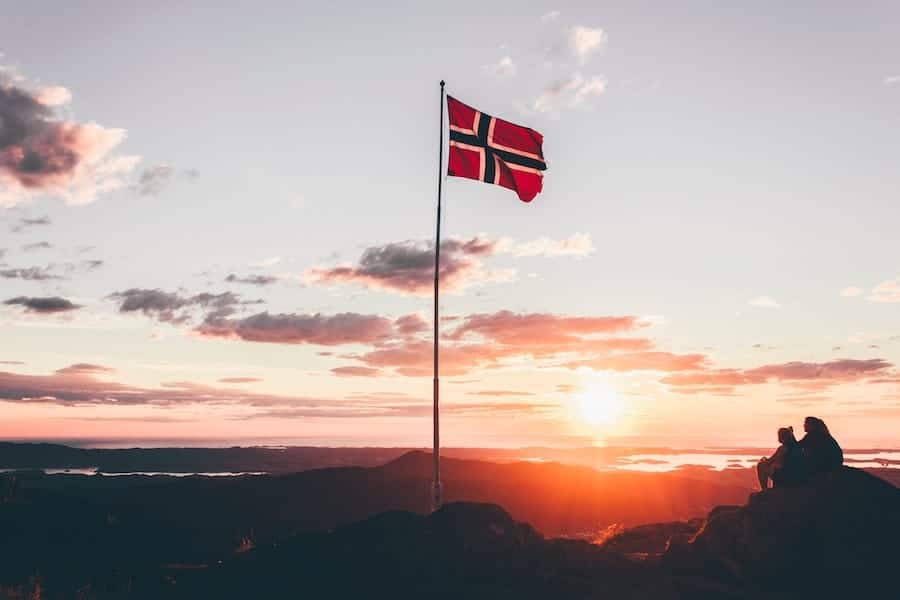

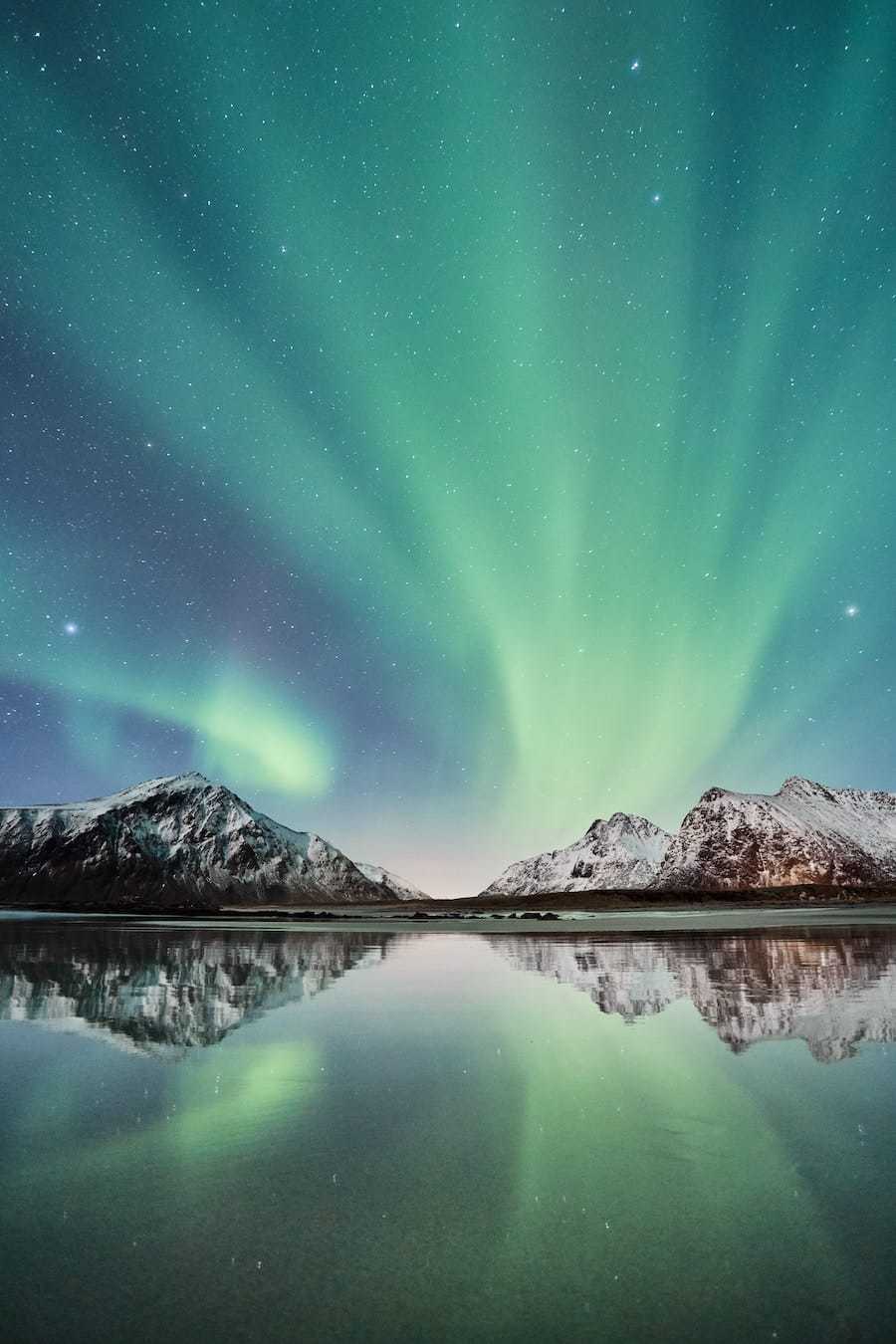
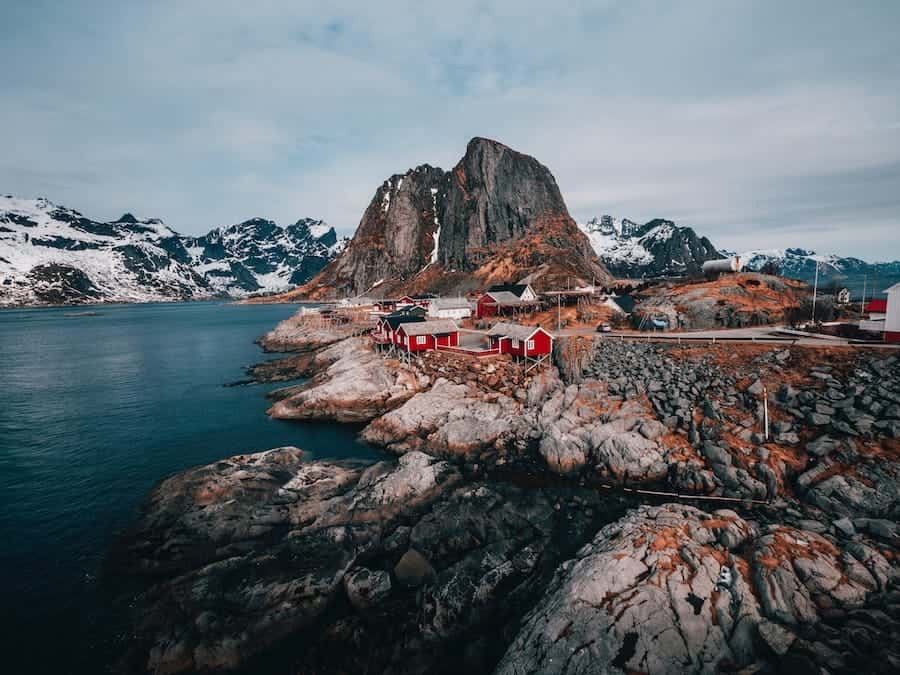
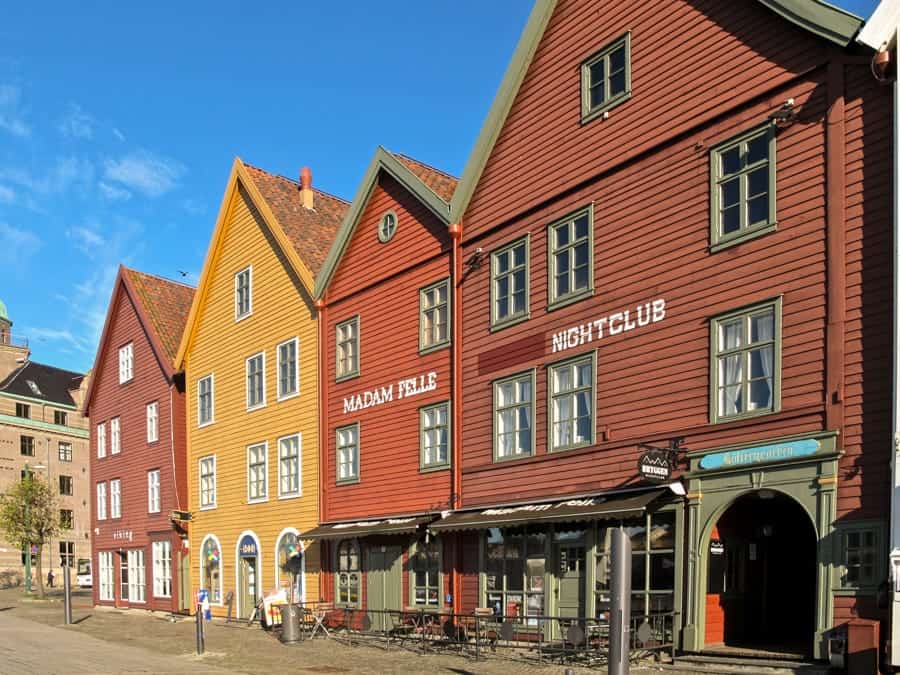
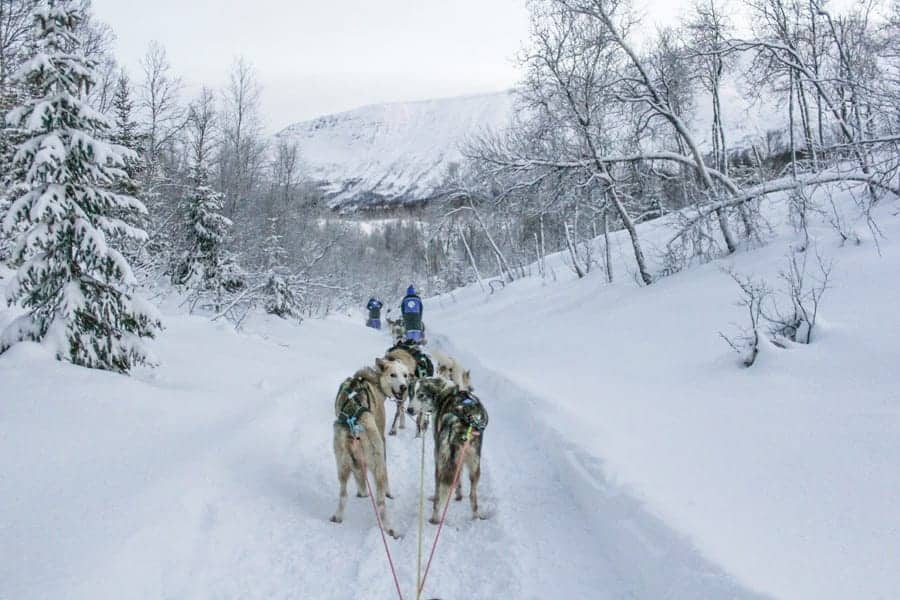
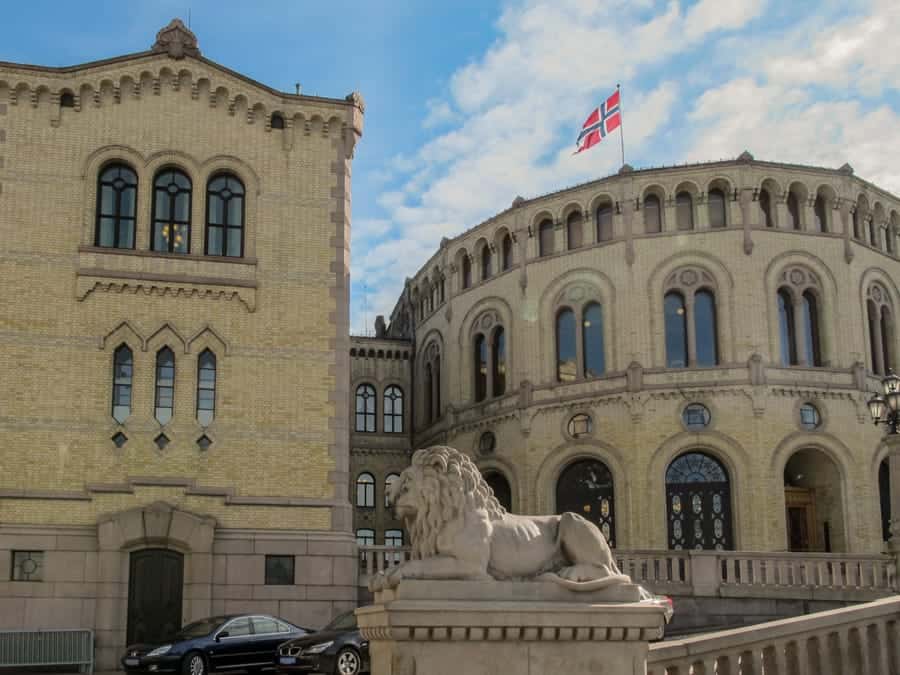
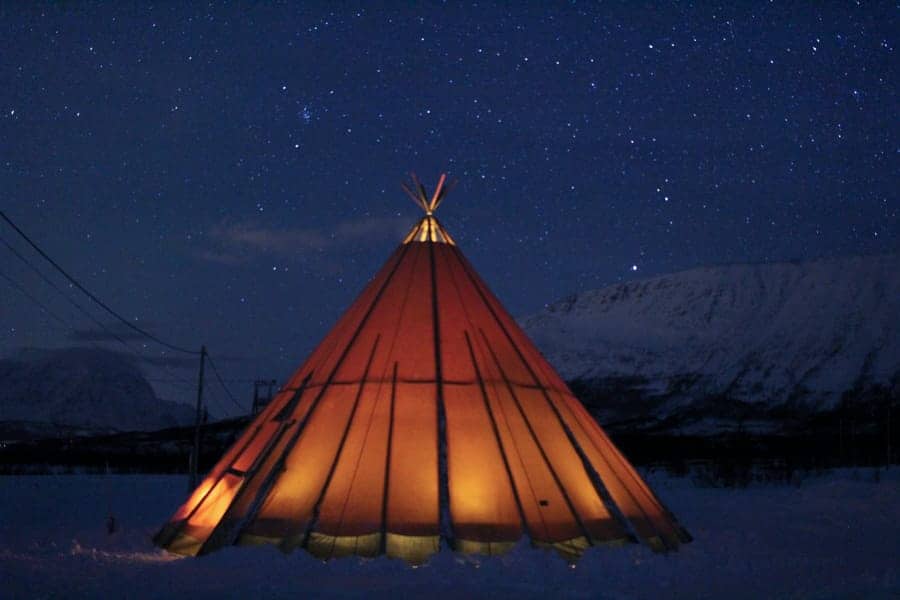
Just a few tips/comments;
Regarding the tax situation; If for some reason, you don’t give your employer a tax card in time before yor salary is paid out – a 50% tax will be filed from that paycheck. However – as the basic tax return is automated – at the end of the year, your total taxable income is calculated, and you’re only taxed the percentage that corresponds with that yearly income. You’ll get the rest back next year – with interests. (Unless it turns out you’ve been paying too little, then you get a bill).
Many people find it easier to use what in norway is called “tabellkort”. It is basicly a chart of tax percentages, where the tax percentage is calculated every payout. Great if some months are good, some bad. But! Keep in mind that when entering a new year, your new chart is chosen on basis of last years income. If you had a bad year incomewise, but you know this year will be better – you need to ask to have this changed. If not, you will be taxed too low and get a huge bill next year.
There are no interest or fees on unpaid (simply taxed too low percentage) taxes, as long as the bill is paid in due time.
Food. I don’t know where you’ve been shopping, but these pictures are aweful. I’d advice you to find other stores, average store chains carry quite decent quality goods.
Having things shipped to Norway. Well, shipping to norway isn’t always practical or cheap. But, if it is legal to import – it isn’t really that difficult. Get yourself an account with JetCarrier. They give you a recipient address in the US, they bundle up everything recieved in your name over the last week, and ship it to you in Norway. You still have to pay shipping and any imprort tax – but as they handle all the importing themselves, there are no extra fees for customs handling and such. They even handle really large shippings if needed.
The level of conformity differs vastly from place to place. Some places are like a chinese school yard, others more the opposite. Citys with many colleges/universities are typicly much more diverse, as they draw in much more people from other parts of the country and the rest of the world.
such excellent tips! especially the tax advice! i put myself in a pickle because i have a processing visa…which means that im kind of in limbo at the moment and can not get a new tax card. it is tough being taxed so high on such little income! (im only allowed to work a part-time job at the moment) :) i heard from someone that once i get a new tax card i can immediately get the money back that was withheld…or i can wait. not sure what ill do yet! my visa is taking a ridiculously long time to process. i was told three months and we are approaching 5 months soon!
about the food…i definitely shop at the better stores and pay a premium. but unfortunately, at these better stores, you still find the disgusting quality and mold. i remember going into centra during christmas time and finding so many moldy clementines that i nearly got sick. but the majority of the time it is okay. i stay away from kiwi (produce guarantee is pathetic when everything is normally nasty), rema 1000, rimi, meny (they try harder, but not hard enough), bunnpris, ICA, etc. i typically buy my produce at grønland anymore because there is someone always going through it to get rid of the moldy items. i am fine with produce that doesnt always look 100% and isnt pretty (b/c that has nothing to do with taste), but when it is molded…i find that unacceptable. most norwegians dont even seem to notice which tells me they are used to it.
ill have to look into getting an account with jet carrier! great suggestion! i have mostly been able to get the things i need here and havent been too frazzled when i cant (i just get friends to bring it for me when they come)…but having an address in the US and getting it shipped sounds fantastic. sure beats having my mom constantly mail me things!
i definitely agree that when you get international people in the mix, there is a little bit of individualism here…but unfortunately, i completely believe that norwegians are totally conformed. it is starting to get better…but i think it is by far the most conformed place ive ever been to in the world!
thanks so much for your comments!!!
Just want to make a few commets, since I’m a Norwegian..
1. Allemannsrett; Yes, that is a good thing. I thought it was like that everywhere in the world – until I travelled to the UK, and we wanted to paddle on a river. No, that was a privat river, and we were not allowed – unless we paid about 24 dollars a day..
Thank God something is free in Norway :-)
2. Salaries:
Norway has a flat wage curve.. if there is something that is called that in English.. It is not that much of a difference if you work at McDonalds or work as an engineer.
In Norway education is free, and people usually have a lot of it. But not always what the market requires.. like engineers and in medicine.
The engineering part is probable because it is fairly hard. I remember we had a lot of math and physics. So many people study arts, languages, literature and suff where you will not get a job in many cases. Few people in the country gives few jobs like that.
When it comes to doctors, the doctors have a say in how many students they educate a year. It has been educated to few for at least 15-20 years. I think many of them are afraid too many doctors, will give them more competition and lower pay..
So when I’m at my local hospital, I usually meet a lot of German doctors there – with rather poor language skills.
But back to salaries.. I have travelled and lived in other countries for 7 years, including the US, Canada, Spain, Greece, Thailand, Germany, Austria, Sweden, Denmark and Italy.
I noticed that if you worked in a store in Spain or the US (especially chains like Walmart where 70% of the workers get extra state money to survive – even if they work a regualar 40 hour week) made pocket change, compared to Norway.
At McDonalds they made $4.10 the first time I was in the states, and $7.74 earlier this year. You make about 3 times as much in Norway – doing the same job (and probably a bit slower, and with less smile.. I’ll come back to that later).
Anyway.. jobs that require more school does not cost that much.. School is free, no tuition fee – so the student loan is for housing, if the school is in a different town and your parentes are not paying for you.
I took 7 years at a university in Norway, a year at Hawaii Pacific University and a German university for a year. The government/state paid for it. I only had $12 000 in student loan after this period.
So when I begun to work I was in no rush it make a lot of money to pay a $80 000 college student loan, as some in the US for example. In engineering the salaries are not that high, unless I had worked in the oil industry. A cleaning lady on a oil rig can make $100 000 dollars a year. That is sick.
3. Taxes:
You can do all that online now, and for most people an automated solution workes fine. They are pretty high, but the more you make – the more you pay. And those in need will get some, or more back.
So far I’m not sure if I have paid enough taxes to pay for what I’ve got..
Weeks before a baby is born, the mother starts 1 year of paid maternity leave. The father 3 month.
All health related checks are free for the pregnent, including all the stuff they need.
The parents will get money transferred to their bank account, once a month for every child – to help them cover expenses. Around $150 a month pr child.
The monther can stay home with the child the another 2 years and get paid a reduced amount each month (compared to the first year).
Kindergarten is subsidized.
Then follows 10 years of manditory education (free), and another elective 2-3 years (depending on what school you choose). You are guaranteed those years.
Ather that you can go to the university. All I paid was about $100 each semester. It didn’t matter where in Norway or abroad I took it.
I worked after school to reduce my student loan, and to give me money to travell.
Anyway.. I have children now, and they also get free education, and free healthcare until they are 18 years old. The period between 18 and 25 will go from free to full price for dental care. It gets more expensive every year until you are 25, and you have to pay the adult price.
I had to stay (as most Norwegian men) in the army/navy/airforce for 1 year. During that period dental, doctor, optician is free. If you fall outside the society, and can’t get a job for long period of time – dental and doctor is paid by the state, because you have reduced income.
4. Food quality. I don’t agree that the food quality is poor. But.. you can see stores that have bad fruit and so on. That is because of a low number of staff in the store – because of high wages, most stores are really understaffed. I have worked in one, and I know. If you see bad fruit, let the people who work there know. If you see it several times, contact the manager. At least where I live – the food is of OK quality. But it depends on those who work in the store – and not the products in the first place.
The fruit that is imported from tropical countries have been in a ship for some time. If I stay in a warmer country and buys a pineapple, a coconut, a banana – they will usually always taste better then what we get in Norway. Because they are picked before they are ripe.
Rotten fruit.. complain. That is disgusting.
What I miss in most of the Norwegian stores is variety. But again.. that is no problem for me. I know which stores to use, and I travell (like most Norwegians) abroad several times a year – and tend to buy with me stuff I want. Every 3 month over 5 million people travel abroad. Think if that was the US, and so many travelled abroad.. 1,25 billion travellers a year.
You will probably only find a handfull on products in Norway that is the same type/brand in the US. And even if it looks the same, it may not be just the same.
Norway restricts a lot of additives, and azo based food colors and so on – because they are linked to allergies or cancer.
I have bought a purple bouble gum in the US where it was written on the label that it contained substanced that had caused cancer on reseach animals.. I find is weired that it’s leagal to sell.
Just like a bunch of pesticides used in the US that is banned in most of the western world – including the country that makes the pesiticide. And the result is polluted drinking water, cancer and birth defects and so on. It was a documentary on CBS (I think) a few weeks back.
So you will not find as much blue candy here, and blue food coloring for example.
You will see that Norwegian apples are less perfect then imported apples – because the Norwegian farmers must follow the Norwegian rules – but the imported food does not. Even though samples may be taken, and the imported fruit container may be garbage.
And my last point.. it’s not that hard to find a job in a store, and it is difficult to loose your job in Norway.. which sometimes result in store workers who don’t give a shi*.
5. people don’t complain..
Yeah.. that is normally right. But my wife complain a lot, on everything that is not what she expect. And it depends on where in Norway the person is from – and what they are not pleased about. I complain when people do a piss poor job, and I have paid a lot of money to them.. like carpenters..
6. Stuff banned..
In general it is alcohol over 60% I think..
A lot of food additives and food colors that is suspected or documented to be bad for the health.
Some pesticieds and solvents.
Red Bull was banned because of the coffein and the taurin – because children and pregnant women is not supposed to drink it. If it is not possible to buy – they can not drink it.. Now it is legal..
Oh yeah.. when I was young – skateboarding was illegal. I was stopped by the police.. and I thought.. are you kidding me?
Base jumping, paragliding, wing suits, mountain climbing and so on is legal – but not skateboards? It’s been legal for a few decades now.
Some herbal products are illegal because of potential risk.
A few weeks ago I heard that Segways were illegal.. But I was riding mine for several years, and never heard about it.
It all comes down to one thing. If a person gets ill or hurt – the state has to pay for it. They are probably trying to reduce their risk.
And if it’s not banned, it is because of a small market. 5 million people and small cities = less economical to add stuff to inventory that does not sell very well. The same reason with clothing.. even though – you will find a store that has most of it – but it requires an effort.
7. Shipping..
I’ve had very few problems. I order parts from EU and non EU countries many times a year. Over 200Nok = toll, which cost money because it takes time, and time = money. That sum is so low to protect local stores in Norway. In Norway, if you have a store – and you want to import a product from lets say the US, the US company will give the importer the right to be the only seller in Norway. And they can add an extra profit because of that, and the store price can not compete with a foreign web shop for example.
I order some engine parts from the US, and they will usually not send to Norway. We “all” use JetCarries, for that. Car parts are extremely cheap in the US compared to Norway. I can probably buy 4-5 oil filters in the US for the price of 1 in Norway (of certain brands). Just as you pay 3 times as much for a pair of Levis jeans in Norway, compared to the US. Converse shoes are at least twice as expensive here as well. Not that I would buy those anyway, at any price.
Books are toll free. I used to buy a lof from Amazon, because they were cheaper – and not translated to Norwegian. Now it’s more audiobooks for me, and the local library has a tonn of those.
A tip is to ask the foreign web shop to mark the shipment as a gift, or that is has a value under 200Nkr – so you don’t have to pay toll/tax.
8. tax..
9. Hospitals:
I don’t think you have the right impression here. I used to service the equipment on hospitals, and depending some on which hospital – the equipment is good and modern. We make some of the equipment for GE for example too.
When it comes to the building.. if it was build in 1903, they are probably not allowed to change it. Can be a building of historic interest – even though the building looks like they used a milk carton as a blueprint.
Keep in mind that you are free to chose which hospital you want to use. If you don’t like your local one, you can choose another one. The state will pay for the extra transportation costs.
The standard for hospitals is allways changing, and the now national norm was first tested on this hospital. http://www.youtube.com/watch?v=rutHGN4IMB8
All other hospitals will have a similar system. But that cost a shitload of money.
Some hospitals could use an interior designer – but it’s function over form at the hospital so.. it is what is is. The hospitals does not have to make an ad, and show their new TV in the room, or the up to date color on the curtains – so they can sell their services.
Certain procedures are not done in Norway. If you have a weird/not normal problem, you will most likely be sent to Germany, or the UK. It is not cost beneficial to train doctors in a procedure that they will have to perform every 9 years..
Oh yeah.. one thing people from the US notice when they go to see the doctor is the lack of a total body check up. In Norway you have to ask for that, or they will just check the reason why you came.. Black eye.. looks good, nothing damaged. Bye.
10. Banking.. It’s bin like that for at least 15 years..which was the last time people was allowed to use cheques. I thought that was normal. Just like the use of a chip in the card, because it is way safer then the magnetic stripe.. until I saw they didn’t use chip readers in the US, AND still used cheques. Is it the cost?
The number of people does not matter when it comes to the system..it has to do with government control. All banks use the same serviceprovider, and they all have to be compatible. Many EU countries have the same.
I miss more places to pay with the phone. I’m not thinking about the coke machines where you send an SMS to the machine to pay for a bottle, because that system is 20 years old.. but NFC.
I can use NFC in only a few stores and pay for a few services. When I was in Singapore I could use the phone to pay for some of the public transports and for a few wendingmachines.
11. Feriepenger.. other people have explained it right, so I will not elaborate more on the subject. I have allways been allowed to work in the summer if I wanted to. But most people want their holiday in the summer, so they can travel abroad with their children/familiy. I usually take 6-7 weeks of vacation a year, because I work extra hours and insted of pay, I take a few extra days as vacation. We typically take 2 week holiday in the summer in Europe somewhere, like Germany, Austria, Italy and so on. Sometimes we take the car, and other times we travel by plane. In the late autumn, we take a week in Mallorca or Crete – while they still have nice weather.
Then we take a week or to in the Canary islands before Christman. During the winter we take a week skiiing in Norway or in the Alps somewhere. And in the Easter, we take a week.
It is cheaper to travel from Norway by plane and stay for one week at a hotel and take the plane home again – then to take the bus to and from the airport we use.. that is Norway in a nutchell.
Just like when I ordered a Scooter from China, and I paid more in transportation in Norway – for 50km then I did all the way from China.
12. Conformity.. yeah.. maybe. Depends on where you are and so on, and how vain the people are – and what type of person they are.
Just as when I travelled, and worked as a tourist guide – I could sport people from the US, the UK, the Netherlands on how they were dressed.
When it comes to sport.. you will find them all – but not typical US sports like baseball. American football, lacrosse and Rugby are also almost non existing. But soccer, badminton, tennis, curling, hockey, figure skating, gymnastics, waterpolo, kayaking / white water kayaking, a LOT of martial arts (at least where I live), achery, sports shooting, axe throwing, swimming, diving, knife throwing, cross country skiing (if it is a place of Norway that has snow in the winter), ski jumping, biathlon, snowboard, snow what not.. . and many more.
In my family you have to practice at least 2 sports, and 1 must be a matrial art. Our family use about $2000-4000 on sports related costs a year.
13. Everything cost money.. well yeah… most things. Capitalism.
But there are more things for free then you would expect – but just ask a local that know the area.
14. That depends I think. But with high prices on many things – we have to think where I get best value for my money. At least those of us that’s not loaded with cash.
For example.. I hardly ever go out with my friends in the city to have a few drinks. It is cheaper for us to travel for a few days to another country with lover prices, and hopefulle better weather.. or a trip to London just for a change.
A planeticket to London cost the same as two Jägermeister shots in a bar.. so the question is.. do I want a trip to London og a few shots in a bar in Norway? I’d rather buy a large bottle of Jägermeister in Germany too. Costs 1/3 – 1/4 of the price in Norway.
Just the same way with dining out. Apart from a trip to Peppes pizza we never go out. The food may be good, it WILL be expensive and the service is usually medium at best – unless the waiter is a Swede working in Norway.
We save the money, and take an extra week of vacation.
Also. . some things are really cheap in Norway. Like a pack of 25 Papmers dipers for kids.. I think we pay $1.50. How can they make it that cheap? Or if you buy clothes for kids and pay $1.50 for a pair of pants..
It is tradision in Norway to own your own house, and people usually buys the house before they have kids. But the last 10 years have had an extreme price increase. Before I travelled abroad I saw a house for sale for $100 000. that was cheap for that house. When I came home – the same house got sold for $350 000, and they had done NO work on it.
I think the houses are overpriced, and will probably fall by as much as 15-20% over a period of only 2-4 years. That is bad news for people with a massive loan on the house. The loan may be larger then the value of the house.
New building codes have also made new houses much more expensive to build, and EU regulation/standardisation have changed a lot. People used to be alloved to build their own house, and the building permit was easy and cheap to get. Now it takes a lot of time, and cost a lot.
Still it is better to pay on a house loan/mortgage, then to pay the same money to somebody else – just to rent a place.
15. Travelling in Norway is expensive and it takes a lof of time. Trains are slow, using old trains or old rails. Driving a car is faster. Flying is usually expensive. I know people who insted of visiting family in Norway travels to Mallorca instead, and spend a week together there. Because it is cheaper to fly all the way down there, then the air fare in Norway.
Roads in Norway is getting better – but not fast enough.
We’ve had a government that have said, that if we build to much road, and to good roads – people will drive more, and a car driving in high speed pollute more then one that drives slow.
That is also why car prices are INSANE in Norway. Cars are taxed for weight, engine size (ccm) and engine power. That is why you’ll almost never see an American car here. While the trend in Japan and Europe has been towards smaller cars with small engines (less pollution) – the US never did. And they have sold very few cars here since 1976 or so. A Camero with the V8 engine cost about 4 times as much in Norway as in the US. So a large Mercedes or a BMW 7 series are cheaper.
I can buy 4-5 small cars for the same price as the larger one I need. I fail to see the logic in that. But as soon as it is large enough to be classified as a minibuss, it is suddenly cheaper again. Even though it’s heavier and use more fuel.
As a Norwegian I would like to change the following.
1. We pay about $10 billion in car taxes in Norway. I would love if they could use 50% of that on roads.
2. Car taxes are lame. Larges safer cars are too expensive for young families to buy.
3. A politician should have worked at least 5 years in a private company, and at least 33% of them should have worked in production of some kind. They should be paid the same as the average industrial worker in Norway. That way, they would feel how taxes has an effect on peoples economy.
4. People waiting for a routine surgery should just be sent to Thailand to Bumrungrad hospital, and after the surgery they could stay there for another 2 weeks. I have done the calculations, and it would save the state for a lot of money.
5. Gas prices: as a Norwegian we should get 1000 liters of fuel a year for $1/6 a liter.
6. We should sendt people working in the service industry on a course to learn how to smile and be polite.
First time I was in the US, I woundered why everybody smilied so much. it can’t be SO fun to work here and they can not possibly be in so good mood for so long time. Something in between would be nice.
7. Simplyfy all import tax, and income tax should be flat on 15%.
8. Remove all the toll roads. They are not cost effective. Just add 10-20øre for every liter of fuel. Would be more then enough.
9. Hire a Chinese company se link: http://www.youtube.com/watch?v=rwvmru5JmXk
to build a number of these buildings in the 10 larges cities in Norway, and within a year stabilise the housing price.
10. Make it less proffitable to be a slacker with no job.
11. freeze all taxes, and freeze all wage increses in Norway for at least the next 10 years.
Thanks so much for your comment Espen!!! Very detailed and informative! While this post was meant for foreigners…I definitely appreciate a Norwegian’s POV as long as it is informative and not attacking. Because foreigners see things differently when we move here and not like the locals, naturally.
In response (which wont be long as I have to jet to work!), I loved reading the add-ons you put at the end. I definitely agree with each and every one (and I’m sure my fiance, the Norwegian of the household, does too!) I’ll never forget when I read in the paper that Stoltenberg was pulled over for speeding and got out of it and never had to pay that ridiculously high fine. I was appalled and thought he should have had to endure that at least once to see what it feels like to be ripped off immensely. But anyways… ;)
And books are toll free?!?! I did NOT know this. I have about 5 different books (I’m not much of a reader, but love reading history-type books) saved on my computer from Amazon and was going to have them shipped to my mom to send here. Now I can just have them come directly here! Thanks for that tidbit.
I also think it’s fantastic that in your family, everyone must play sports. I think it is so imperative for children to have hobbies and activities. I see WAY too many kids here pissin around after school buying candy and boller in stores and sitting around outside with friends. While this in important…it shocks me to see kids not go home and do homework or study…or play sports or be active in music.
This is random…but I just read in one of the papers that they are bringing segways to Oslo for touring purposes. LOL. So perhaps this doesnt make them illegal in 2014?! Cant say im eager to jump on one now since the founder/owner of Segway died on one.
I have no idea why the US doesnt use chips in our cards? I honestly had never really though about it. I guess our cards just work off of a different system? Since chips are newer around Europe, most machines take American cards with no problems (a lot of Asian cards don’t have chips too). But when I see newer cards readers pop up, you are required to have chips. When my family visited from the US, they couldnt even buy tickets at most t-bane stations because their card lacked a chip. I thought that was kind of shitty actually because most of the tourists in Norway are actually coming from the US and Germany. I understand most stations not having a machine that can take cards w/out chips, but Holmenkollen?? The only people up that way are tourists for the most part LOL ;)
I understand what you’re saying about stores being understaffed and that is why produce is the way it is. But I find it inexcusable really. But then again, it just goes to show that customer service isnt a large priority to most establishments. And I dont think stores realize this, but once you let one thing mold, it perpetrates mold on other things. And it is costly over time if people are not caring. Which most people working in those stores do not care from my opinion. They just want to make money and go home and take no pride in what they do. That is why I shop at Ultra or Grønland. Ultra has the best customer service Ive experienced in norway (aside from NSB actually) and i refuse to spend money elsewhere. I only buy some stuff in grønland because im poor ;) haha.
thanks so much again for your comments on here!!!
Hi Espen! Nice thoughts about the blog. One thing i read about your comment is that you work in hospital and service equipments? Do you mind sharing if you happen to know any companies hiring Field Service Engineer or Biomedical engineer specifically for mammography, ultrasound, IVD machines in Oslo? I’m planning to move to Norway this last quarter and hopefully it will give me an idea. Thank you so much!
Much on this list reminded me of life in Finland. Especially the salaries and healthcare. You can get free dental in Finland, but you must wait a long time and usually when something like a cavity happens to people, they just call a private dentist and pay because it is much more efficient. Also, even though Healthcare is free most people I know prefer using private care which is normally covered by your employer for those lucky enough to have it. So it is kind of a myth that healthcare is far superior in Scandinavian countries. However, if you do end up getting really sick then the system works well, even better than US.
P.S. I would kill for a Trader Joe’s store in Finland! Love it!
that is interesting to know that our adopted homes are so similar! minus the dental care situation ;)
i think healthcare is far superior in the US compared to norway. FAR SUPERIOR. the problem in the US system lies not in the quality but rather the availability of course. but when people in norway tell me americans should get free healthcare i just laugh because the healthcare in norway is anything but free.
i have done many trainings and briefings to people moving to the US from norway and many have lived there before and surprisingly they tell me the #1 thing they miss from the US is the quality of healthcare there. i have a feeling that once i am able to get more of an income here in norway ill go private with things instead of public. i dont have the patience for the public system…i was kind of spoiled living in the US i think :)
trader joes in norway would make me the happiest person on earth. although i have a feeling i wouldnt be able to afford it and the point of trader joes would kind of be obsolete given they cant really grow much in the north!
http://thepatientfactor.com/canadian-health-care-information/world-health-organizations-ranking-of-the-worlds-health-systems/
Here is a list of country healthcare systems ranked by outcomes of that system. Norway is ranked 12th, and the United States is 37th. I have lived in South America, Central America, Asia, and Europe. I am not impressed with the quality, availability (due to price) with the American system. Also, prescription medicine is less expensive in Norway. The United States has the cheapest consumer goods of any country I have ever lived in, and the most expensive healthcare and education. For me at least, I would rather live in a country with better educated, and more sophisticated people, than people who work 60 hours a week, to buy stuff. Americans, obviously not all, but a large amount value themselves on what they buy, and how successful they are based on what they have compared to others. Also, having lived in other capitals working for the embassy, I can tell you there is more to do in Oslo, than almost all suburbs in the US. I enjoyed reading what you wrote, it is certainly true you are writing this from an American centric perspective. The average worker you are referring to in the US, doesn’t have insurance, or very low quality health insurance, and poor education. Median wage in the US 25,000 compared to 34,000 a year in Norway. Median household income in the US average 50,000, where household median income in Norway is 98,000. Of course the United Nations found for the 12th year in a row, Norway was ranked the prosperous country taken into account income, health, and education. There are more mistakes that lead to deaths, malpractice, and other inefficiencies per capita in the US system. Working in the government, so many struggle to adapt, and many assume since it is different, that it is inferior. Also, taking into account that in the US dependent on state, income level, zoning, there are much greater inequalities. Education is free in Norway all the way up through PHD, and also at a very high level. So you can imagine, having no student debt to pay back as well, would certainly increase your spending potential. This of course has also lead to Norway having a higher percentage of college graduates, and higher percentage of the population having advanced degrees. In the US nothing is free, everything is based on private competitive practices, that don’t always produce better outcomes, and are not always ethical. Also, as an economist, looking at worker productivity Norwegians are more productive than the average US worker. The US worker certainly works longer hours, but more efficiently than those in the US. This is measured in GDP per hour worked where Norway is tops in the world (source below). I think as an American we think that working longer hours in a competitive frantic pace produces better outcomes, but no measurable outcomes show this. Also, in regards to your time off at your job that is not consistent with other jobs in the US. Working as an economist in the private sector you can expect a week off a year, and this can gradually increase over time. Even though the workload doesn’t let you take that time off. Norwegians also work the shortest work week on average in the world at 33 hours, with long maternity leave, and with those that have children more time off as well. The average worker in the United States will work a full month more per year, than a Norwegian, not counting the month long vacation you mentioned per year. A recent study showed that the Average American will spend 73 percent of his or her life at work or in school, and this includes retirement and before school begins. I am certainly proud to be from the United States, but unfortunately we are no longer number one in many categories apart from ones we should’t be proud of like percentage of population in prison, homicides, and gun deaths.
http://money.cnn.com/gallery/news/economy/2013/07/10/worlds-shortest-work-weeks/3.html
http://abcnews.go.com/US/story?id=93364&page=1
thanks for your message! i no longer live in norway so i dont really read too much of what is written/commented on this post (moved away from there over a year ago) but im sure itll be helpful to someone :) enjoy your time in norway! it is a beautiful country!
Agreed. The posted salary for my profession is equal, so if I move to Norway, that would be the same. I have been working (for the government) for almost 6 years and I only get 3 weeks of vacation a year and because I work in healthcare, I have to give 60 days notice to schedule vacation time. SIXTY.
Healthcare in the US is hit or miss. I have a great plan, but it is expensive. My co-pays are typical at $25-$35/visit (US dollars). I recently moved from a different state and found out, from a new Dr, that my previous Dr had missed something that was causing serious health problems. My bi-weekly healthcare deductions are way more than what Norwegians pay yearly. I have an excellent prescription plan though, so I pay minimal amounts. But my friend who is required to use MediCare (due to a disability) has the WORST time finding good care and accessible care. I am waaay more fortunate than she. And don’t forget where the US falls on the scale for maternal deaths. We have our faults too.
I was surprised at your experience with food quality here and there. First, I have lived in many cities and states in the US (I am a nomad at heart). I have experienced the full spectrum. As a student, I lived in a poor city in MD and found wilted and rotten food at a major chain. Just outside of the LA area, I found some of the best produce I’ve had in the states. Where I am (in CA) now, the produce (even at Trader Joes and Whole Foods) is limited and not the best quality. I find better produce (and a better selection) at Von’s. My Trader Joe’s produce is always going bad after 5 days. Really depends on where you live. *I had delicious, fresh, flavorful pineapple in Norway, in January that is waaaay more delicious than the pineapple I just got at Whole Foods. So disappointed.
Transportation!!!!! Ugh. The transportation in Boston was great when I lived there. DC transportation (Metro) was pretty good, buses not so much. But everywhere else I have lived, the transportation has been ridiculously inefficient or non-existent, so you need a car. I found the transportation reasonably priced and efficient when I visited Norway (2016). Granted it was for a brief time, but even my friend never who lives there had complaints about the system. She doesn’t even own a car. There is nothing to do where I currently live. You have to drive 2 hrs to get to the closest major city. There was always something to do in the major cities I lived in except for one. But I agree, the suburbs in the US are only “fun” if you have kids and do family activities.
I have a ton of student loans. This country is very violent and crime-ridden. Americans tend to lack respect for rules and all members of our society (be honest, we are a “me, me, me” society in general, as seen by our laws, etc). I am not struggling financially, but when I see family members, friends, and strangers that cannot make ends meet, afford healthcare, car repairs, etc. I cannot help but think that if we were more connected as citizens, this country would be a much better place. Cutting welfare, WIC, Medicare, education, Planned Parenthood, etc. are not the ways to build a better and stronger country. We need to rethink our direction.
Americans do put a lot of importance on “stuff” and get their self-esteem from these material things. I am sure there are Norwegians that do this too. I am not comparing, just commenting. I did notice the limit on the number of items in Norway. In America we have entire aisles filled with tons of choices for toothpaste, cereal, toilet paper, make-up, cleaning supplies, etc. Do we truly need all of these choices? As an American, I know that I feel I have gotten the best item when there are 50 to choose from, but is that really true? I mean sometimes I do choose by packaging alone. When you step back and look, our way is a bit ridiculous and extremely wasteful. There’s definitely a better way.
I know that there are great things that I will miss about the US whenever I decide to move, regardless of where. It is a great country and I will always be American at heart. But l have found that living somewhere new and constantly comparing it to what you’ve experienced elsewhere does you no good. You just have to adapt to what is available where you are and how things are done. I accept that there is no nightlife where I currently live and that things shut down in the summer which greatly decreases your options for fun and activities. Adapt. I accept that there are classes and fun things to do, but only during working hours for those of us who have to work. It is what it is. There are wonderful things about this area and I relish those things.
thanks for your comments and thoughts! i no longer live in norway so i cant keep up with things there but this will certainly be of use to someone looking to move there!! appreciate the insight :)
Spot on! We all need to adapt! I must say that the US is one of the most comfortable places to live in because everything is built around high consumerism.
I have studied and i have worked in the US for almost 12 years. I had opportunities to be mentored and work with some of the brightest minds coming from all over the world in the US. However, when it comes to finding a place where you can grow both as a human and professionally, i think, sadly, the culture in the US has been deteriorating, not because of the people, but because of very high corporate greed. This is the very reason why US has drifted away from “collective thinking about fellow citizens” after FDR.
Places like Norway, even if they seem highly controlled or highly taxed, they seem to have much less influence from the corporations. Their model is to make available as much opportunities for every citizen. How much do we as humans need to live happy? Good enough place to live and good enough to eat. Rest all are the things which can never really be enough for humans, be it clothes, money, cars, etc.
Healthcare in the US is great, but it is always geared towards maximizing profits for insurance companies and not for the service of people. Healthcare in Norway is great too, but it is geared towards service of people. It challenges the people to think about what they are eating, how much physical activity they are getting rather than American style where doctors recommend innumerable tests to make sure one does not have 0.0001% chance of encountering an illness.
Healthcare should be a service and not a privilege.
I see a lot of innovation coming from Norway, with people working less hours and lesser money (as compared to US for high technology jobs).
I just end this with a statement that no place in the world is perfect. We all need to adapt according to how we want to live and what we want to achieve.
Hi Megan,
uhh, I am so excited to have found your blog :-)
Thank you for your lovely comment on mine!! Now, I am on my way back into blog world as all the moving is finally ready… I have made myself a cup of tea now and enjoy exploring your place and find the time to ‘deliver’ proper response.
I love this. I have never traveled to Norway, but it certainly holds such great advice that I would always recommend friends and family to check this!! I did not know at all that camping is allowed basically everywhere! This sounds super attractive to me! Also, I knew that Norway wasn’t part of the EU (probably for oil and whale reasons?!) but I did not know that it has effects on food quality….
Which kind of yogi tea do you need ? I am sending you some, if you like ;-) If that is allowed (not that you have to receive a letter from customs that they kept your yogi tea there (and enjoy it themselves, ha ha) … I am such a tea junkie, and I would not survive without my favourite teas =) )
Love,
Svenja
Happybluebird
What’s up, I read your blog like every week. Your writing style is awesome, keep doing what you’re
doing!
thanks :)